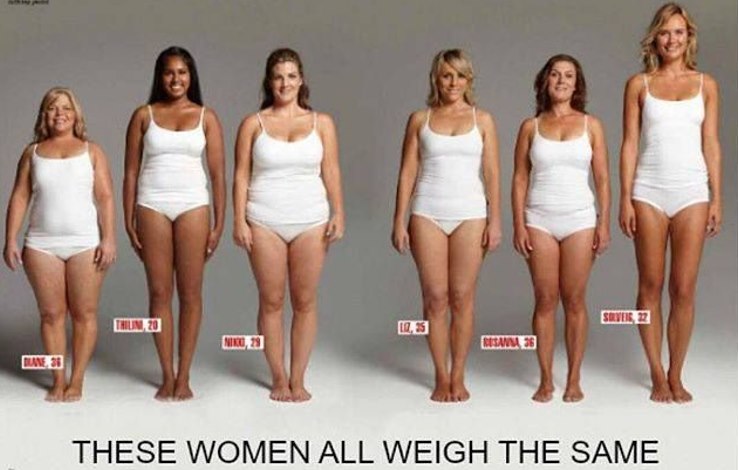Ideal Weight After Bariatric Surgery
“There is no universal formula for achieving the perfect weight”
Following bariatric surgery, patients are often eager to know one crucial question:
“What is my ideal weight?”
Whether you have recently undergone the surgery or have been on the post-surgery journey for some time, finding your weight loss goal becomes a significant focus. The pursuit of an ideal weight can be both exciting and challenging, but it is essential to understand that this journey is much more than a mere number on the scale. An ideal weight cannot be universally prescribed, and finding balance and sustainability is the key to a healthy weight loss journey.
The ideal weight: a personal choice or a science-based number?
If you are wondering, “what is my ideal weight?”, the answer is not a one-size-fits-all number but rather a weight that makes you feel comfortable and happy in your own skin. It is the weight you can realistically sustain in the long run, without compromising your overall well-being. Factors such as age, sex, body shape, muscle weight, bone density, and personal preferences all play significant roles in determining what weight feels right for everyone.
Consider the image below illustrating this point:
What do they all have in common?

Know your excess body weight.
Of course, any journey is more successful if we do not travel aimlessly. Setting at least one primary goal will help you to stay focused.
Start by calculating your excess body weight. To do that, you may want to use one of the most common tools – BMI (Body Mass Index) formula. BMI is a widely used method to estimate whether a person has a healthy body weight for their height. It’s important to note that BMI is a rough estimate and may not be accurate for certain individuals, such as athletes with a high muscle mass. However, it serves as a useful starting point for assessing weight status.
To calculate your body mass index, you only need to know your current height and weight. The formula for BMI is:
Metric Units
BMI = weight [kg]/height² [m²]
Imperial Units
BMI = weight [lb]/height² [in²] × 703
Or you can use our BMI calculator at https://golightbariatrics.com/bmi-calculator/ and avoid the extra work! 😊
Using the same online calculator, you can play with numbers and see at what weight you will reach your desired BMI.
The World Health Organization (WHO) classifies BMI ranges as follows:
| Weight Category | BMI |
| Underweight | <18.5 |
| Healthy Weight | 18.5 – 24.9 |
| Overweight | 25 – 29.9 |
| Class 1 Obesity | 30 – <35 |
| Class 2 Obesity | 35 – <40 |
| Class 3 Obesity | >40 |
If your BMI falls within the normal weight range (18.5 – 24.9), then you do not have excess body weight. However, remember that while BMI can provide a general indication of weight status, it does not consider factors such as muscle mass, bone density, age, and overall body composition. A person at a higher end of the “normal weight” BMI range can still feel overweight. For a more comprehensive assessment of health, it’s essential to consider other factors and consult with a healthcare professional or a registered dietitian.
Set a certain weight loss goal to stay motivated and feel accountable.
- For extra low-BMI patients (BMI 29-30) reaching a “healthy weight” category is never an issue. Occasionally, such patients may achieve their ideal weight and drop even 10-15 pounds extra. Usually, such extreme weight loss is temporary, and such patients naturally regain those pounds as their metabolism and lifestyle stabilizes within the first 2 years post-op. If you continue losing weight beyond your goal, our nutritionists recommend increasing the amount of healthy complex carbs in your diet.
- For low-to-medium BMI patients (BMI 30 to 49) reaching “normal weight” range (BMI 18.5 – 24.9) is an excellent goal to pursue, even if you only get to the higher end of this range.
- For high-BMI patients (BMI > 50) moving from “class 3 obesity” to “class 1 obesity” or even “overweight” category (BMI 25 – 29.9) is a great achievement and health improvement and can be your realistic weight loss goal.
- Finally, extra high-BMI patients (BMI > 75) may not reach the “overweight” category after their first weight loss surgery (usually it is gastric sleeve, a safer option). Their initial goal will be to lose enough weight (anywhere from 100 to 200 lb) to qualify for a second step – revision surgery to boost their weight loss further (usually revision to gastric bypass).
Conclusions
No expert will be able to tell you what YOUR ideal weight is. The quest for an ideal weight is a personal journey that should prioritize health, happiness, and sustainability. There is no universal formula for achieving the perfect weight, as it depends on lots of individual factors. It’s essential to focus on a weight point that brings you comfort and well-being, rather than chasing a number.
Maintenance of your current success and not regaining is more important than obsessing with unrealistic weight loss goals. Bariatric surgeries can provide effective weight loss solutions, but they are not a one-time fix; they require ongoing dedication to a healthy lifestyle. Instead of focusing only on the number on a scale, taking care of body composition, checking muscle mass percentage should be part of every patient weight monitoring.
Embrace the uniqueness of your body and work toward a balanced lifestyle. If you have concerns about your weight or are considering revision weight loss surgery, consult with healthcare professionals and experts who can guide you on a personalized and sustainable path to a healthier you.
Written by Go Light Bariatrics
More From This Category
Left Side Stabbing Pain After Weight Loss Surgery
PPI and Antacid before & after weight loss surgery can not only decrease post-operative discomfort and pain, but prevent several serious post-op complications.
Tuna Melt Poppers
Delight with these Egg Zucchini Pizza. Consider for your protein-enriched pre-op diet.
Cheeseburger Mini Meatloaf
Delight with these Egg Zucchini Pizza. Consider for your protein-enriched pre-op diet.
Enchiladas Casserole
Enchiladas Casserole is comfort food to give you all the protein you need per meal considering your special dietary needs after weight loss surgery.
Beet Hummus
Delight with these Egg Zucchini Pizza. Consider for your protein-enriched pre-op diet.
Intermittent Fasting After Bariatric Surgery
Intermittent fasting can be an effective tool in maintaining long-term weight loss results after bariatric surgery, consider its benefits and contraindications.
Egg Zucchini Pizza
Delight with these Egg Zucchini Pizza. Consider for your protein-enriched pre-op diet.
Strawberry Yogurt Jello
This time we are serving up a delight that's as guilt-free as it is delicious: our Sugar-Free Strawberry Jello recipe. Consider for your protein-enriched pre-op diet.
Colorful Chicken Fajitas
Delight in the flavors of Mexico with these bariatric-friendly chicken fajitas. Consider for your protein-enriched pre-op diet.
PPI & Antacid in Weight Loss Surgery
PPI and Antacid before & after weight loss surgery can not only decrease post-operative discomfort and pain, but prevent several serious post-op complications.











0 Comments